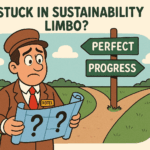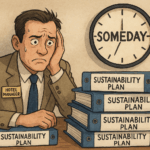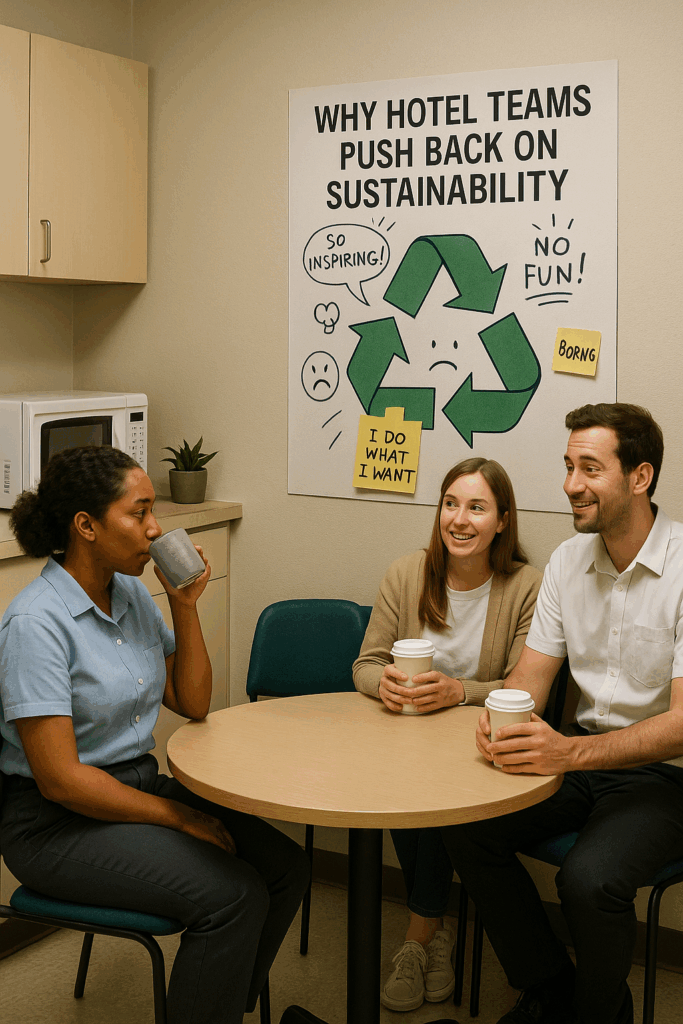
Off the Record: Green Talk, Gritty Truth Series Part #4:
“Our Staff Resist Change (and Honestly? We Don’t Blame Them)”
“Save the Planet, Work Twice as Hard”: The Break Room Reality
It’s Tuesday at 2PM. You’re standing in your staff kitchen, eyeing a sustainability poster…….now creatively “edited” with a Sharpie.
“More work, same pay.”
“Next up: Solar-powered mops?”
Sound familiar? If your green initiatives are getting side-eyed by your own team, you’re in good (and global) company.
“Fear or resistance often sets in, particularly when it comes to changing staff behavior and prioritizing sustainability amid day-to-day business pressures. Owners frequently deprioritized staff training or emissions monitoring, despite knowing these are essential to long-term, continuous success.” – Sarah Habsburg-Lothringen, Responsible Hospitality Expert.
This kind of resistance isn’t a red flag, but rather a human response to change. Nobody wants to change what’s always worked, and someone’s definitely going to complain about the new way of doing things.
What They’re Really Saying: “Please Don’t Make My Job Harder”
Staff resistance to sustainability isn’t because they are being anti-environment or difficult.
They are overwhelmed and on the brink of burnout. What’s to blame? The ghost of 7 other initiatives that fizzled out last year.
Your team’s juggling:
- Grumpy guests.
- Demanding schedules.
- Tight check-out windows.
- Ever-shifting SOPs.
Now we’re asking them to sort trash like a recycling ninja and memorize the compost code system?
Yeah. We’d grumble too.
From their viewpoint, sustainability initiatives often feel like additional work without additional compensation. They’re expected to learn something new, shift their rhythm, and not mess up the flow—all in real time. That’s a lot of pressure, especially if no one’s given them a heads-up or enough guidance.
The Truth: Staff Resistance is a Feedback in Disguise
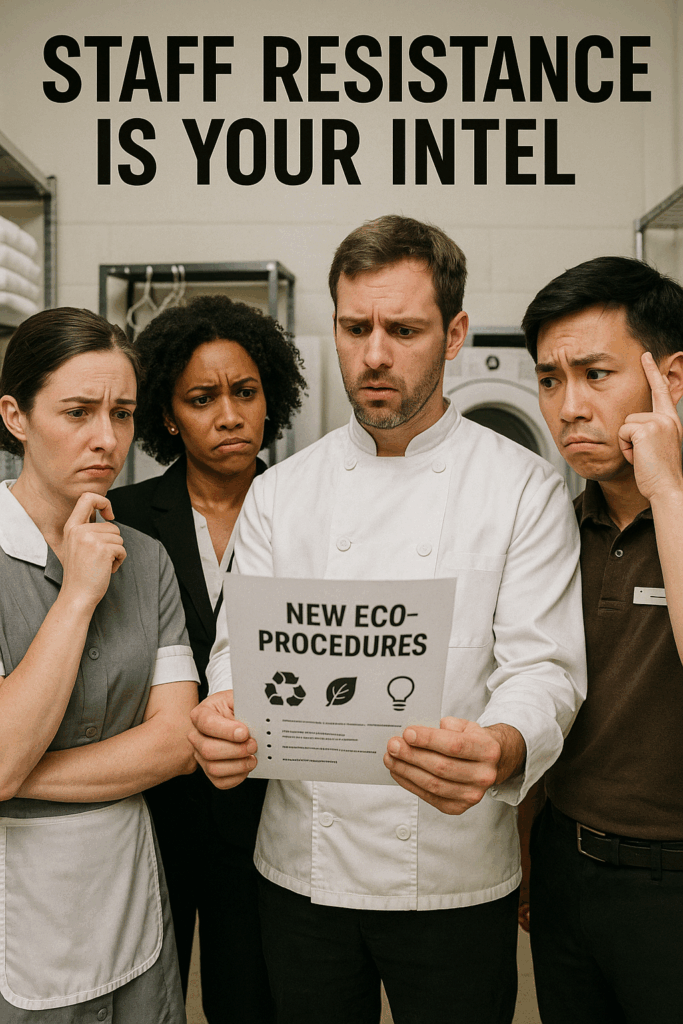
Those eye-rolls? That grumbling? It’s intel.
What your staff are actually asking:
- “Will this make my job harder?”
- “What happens if I mess it up?”
- “Is this just another trend we’ll drop in 3 months?”
According to a study of a small hotel, staff-related barriers including “negative attitudes, negligence, wasteful practices, frequent turnover and unreliability” are among the top internal obstacles preventing hotels from successfully implementing sustainable practices.
But here’s the thing, these aren’t character flaws, they’re symptoms of poor change management.
Treat resistance not as a wall, but as a signal. It’s telling you what isn’t working in your roll-out.
The Three-Strategy Solution: From Resistance to Champions
The good news? You can transform sustainability skeptics into your biggest advocates. It just requires a different approach than most hotels use.
1. Embed Sustainability in the Work, Not as Extra Work
Don’t make them sit through another 60-minute meeting titled “Saving the Planet: Part 4.”
For your staff this feels like extra homework.
Instead, weave green practices into the tasks they’re already doing:
- Training room cleaning? Add: “Here’s how to save 10 mins AND water.”
- Front desk onboarding? Add: “Here’s how to talk about our refill station without sounding like a robot.”
This approach works because it doesn’t feel like additional burden. It feels like better ways to do the work they’re already doing.
Frame sustainability practices as efficiency improvements rather than environmental requirements.
“This cleaning product is better for the environment.”
vs.
“This new cleaning product works faster and requires less scrubbing.”
Both can be true, but leading with personal benefits creates buy-in.
Make it practical. Make it painless. Bonus points if it saves them time or effort.
2. Appoint “Eco-Champions” (But Make It Worth It)
Find the team members who light up at “Did you know this detergent is biodegradable?”
They don’t need to be sustainability PhD holders. They just need to be:
- Well-liked by peers.
- Respectfully curious.
- Willing to model the behavior.
They won’t be imposing rules, they just need to be willing to try new approaches and share what works.
But don’t be stingy. Reward them with perks that actually matter: flexible shifts, bonus points, shout-outs. The goal is to make being a sustainability champion feel rewarding rather than a chore.
Peer modeling beats top-down nagging every time.

In order for this to work, you need to train your champions to focus on practical benefits rather than environmental theory. They should be able to explain how new procedures save time, reduce effort, or improve working conditions, not just how they help the planet.
3. Green Suggestion Box (That Doesn’t Go to the Landfill)
If staff feel the initiative is done to them, they resist.
If they feel it’s being built with them? Game-changer.
Set up a “green wins” board or suggestion box.
Respond to every suggestion within a week, implement good ideas quickly and reward the best ones publicly. Think of cash, perks, and shout-outs in front of management. Be creative.
As a bonus you’ll get insights you’d never hear in your office.
Example: “Guests keep leaving lights on in Room 308. Can we try a motion sensor?” Yes. Yes, we can.
Pro Tip: Share success stories regularly. When someone’s suggestion saves money or improves operations, tell everyone about it. This encourages more suggestions and shows that you’re serious about listening to your team’s input.
Change Is Hard, But Possible. You’re Not Failing. You’re Learning.
The most successful sustainable hotels don’t have staff who naturally love change. They have management teams who understand how to make change feel positive rather than punitive.
Hospitality teams are tired. They’ve heard it all and can see through “just for show” initiatives.
But they’re also eager to adopt sustainability programs that make their jobs better.
They’ll show up for change—when it’s:
- Useful.
- Shared with respect.
- Followed through with action.
You’re aiming for momentum, not perfection.
Your Next Step: One Champion, One Change
Pick one staff member this week who “gets it.” Don’t make it a big formal program, just ask for their input on making something work better.
HEre is an example: “Hey Maria, the towel reuse system’s not landing. Any ideas to make it smoother for guests and the team?”
Implement what she says. Credit her publicly.
This creates a positive cycle where other staff members see that their feedback is valued and that sustainability initiatives can actually make their jobs better.
You didn’t just reduce laundry loads.
You gained an engaged human who just might bring others on board.
Remember, every successful sustainable hotel started with staff who were skeptical about change. The difference between success and failure isn’t the absence of resistance, it’s how you handle that resistance and transform it into engagement.
Happy Implementing!
Does your staff resist change? How do you tackle it? Share your tips, you never know who it might help.
P.S. Don’t be shy to share your thoughts or feedback . Good or bad, don’t hold back 🙃.

Hey👋👋👋, I’m Darina!
Professional word nerd by day, globe-trotter by heart. With 20+ years of getting lost (sometimes on purpose). I’ve mastered the art of finding unpolished wonders — both in cities and conversations. When I’m not helping brands craft words that actually work, you’ll find me chasing sunsets, tasting the world’s weirdest snacks, or convincing locals I’m totally one of them.
Hop on board — let’s explore the world and its stories, one adventure (and awkward mispronunciation) at a time.
Behind The Scenes: The Making of This Post (And Why You Should Share It)
✅ 11 hours of researching, extracting the golden nuggets, planning, outlining, writing, editing, testing and publishing.
✅ 47 cups of coffee (okay, maybe 2, but it felt like 47).
✅ 1 mission: To make this post so valuable, you’d want to read it twice.
Every analogy, tip, and link was chosen with you in mind. If it resonated with you, then mission accomplished.
4 Reasons Why People Who Get It Share Posts
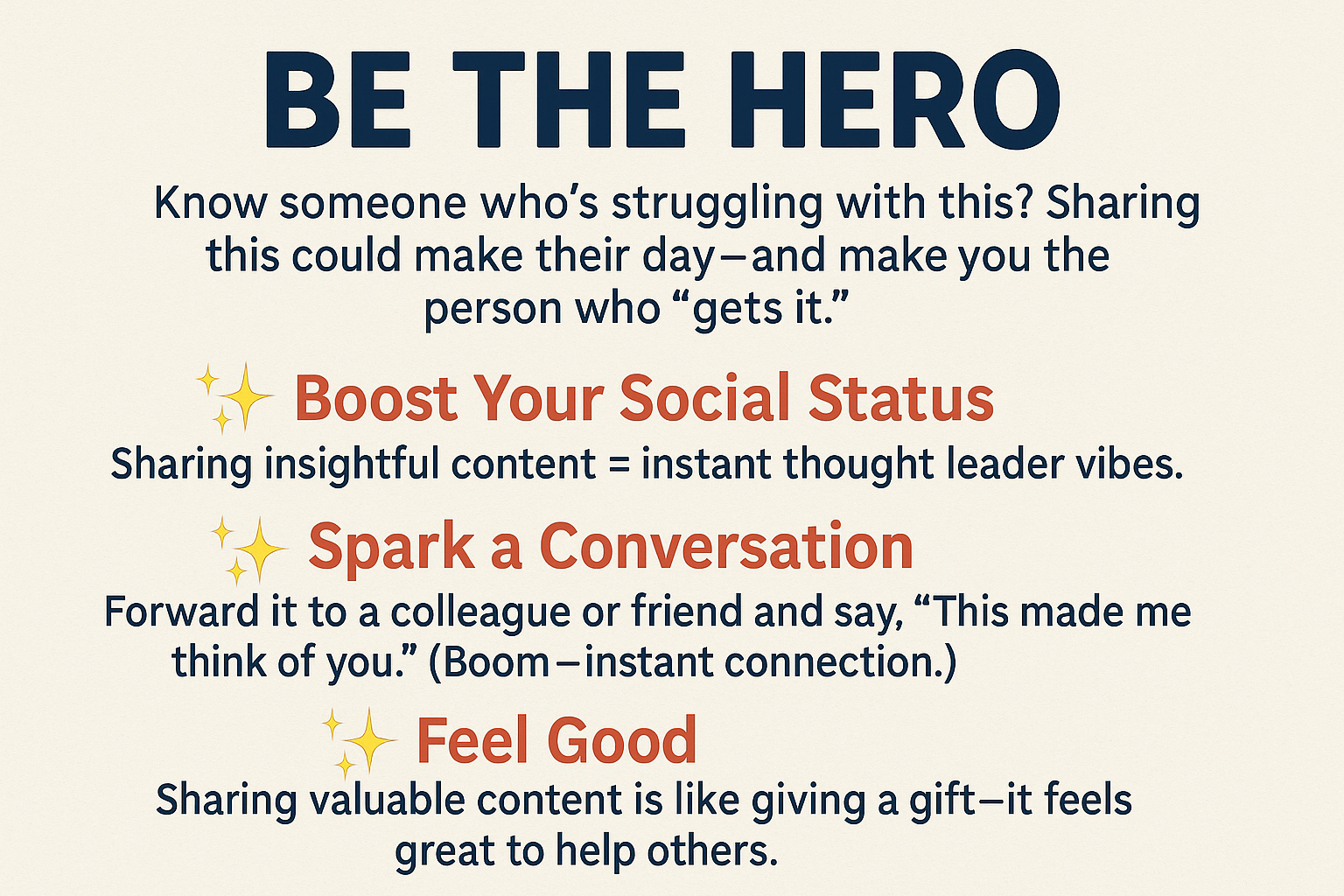
Here’s how to become the Hero
👉 Share it on the dark social 😉 (aka, copy the link and send it directly to them via DM, email, or carrier pigeon).
👉 Or hit one of the shiny social icons below and spread the love.
Because the best ideas are meant to be shared—not lost in the noise.


